

| Cruise Region : Caribbean |
| Company : Oceania Cruises |
| Ship : Marina |
| Journey Start : Sat 29 Nov 2025 |
| Journey End : Sat 10 Jan 2026 |
| Count Nights : 42 nights |
| Day | Date | Port | Arrival | Departure |
|---|---|---|---|---|
| 1 | 29.11 Sat | Miami / USA | 06:00 | 19:00 |
| 2 | 30.11 Sun | Day at sea / Sea | ||
| 3 | 1.12 Mon | San Miguel, Cozumel Island / Mexico | 08:00 | 23:00 |
| 4 | 2.12 Tue | Costa Maya / Mexico | 08:00 | 19:00 |
| 5 | 3.12 Wed | Belize City / Belize | 08:00 | 18:00 |
| 6 | 4.12 Thu | Harvest Caye | 08:00 | 19:00 |
| 7 | 5.12 Fri | Santo Tomas de Castilla / Guatemala | 08:00 | 18:00 |
| 8 | 6.12 Sat | Cocksen Hole / Honduras | 08:00 | 17:00 |
| 9 | 7.12 Sun | Day at sea / Sea | ||
| 10 | 8.12 Mon | Puerto Limon / Costa Rica | 08:00 | 17:00 |
| 11 | 9.12 Tue | Day at sea / Sea | ||
| 11 | 9.12 Tue | Panama City, Florida / USA | 20:00 | |
| 12 | 10.12 Wed | Panama City, Florida / USA | 19:00 | |
| 13 | 11.12 Thu | Day at sea / Sea | ||
| 14 | 12.12 Fri | Manta rays / Ecuador | 08:00 | 18:00 |
| 15 | 13.12 Sat | Guayaquil / Ecuador | 09:00 | 20:00 |
| 16 | 14.12 Sun | Day at sea / Sea | ||
| 17 | 15.12 Mon | Salaverry / Peru | 07:00 | 16:00 |
| 18 | 16.12 Tue | Lima / Peru | 09:30 | 18:00 |
| 19 | 17.12 Wed | Day at sea / Sea | ||
| 20 | 18.12 Thu | Day at sea / Sea | ||
| 21 | 19.12 Fri | Coquimbo / Chile | 13:00 | 21:00 |
| 22 | 20.12 Sat | SANTIAGO DE CHILE | 16:00 | |
| 23 | 21.12 Sun | SANTIAGO DE CHILE | 19:00 | |
| 24 | 22.12 Mon | Day at sea / Sea | ||
| 25 | 23.12 Tue | Puerto Montt / Chile | 08:00 | 17:00 |
| 26 | 24.12 Wed | Mykonos / Greece | 07:00 | 16:00 |
| 27 | 25.12 Thu | Puerto Chacabuco / Chile | 09:00 | 19:00 |
| 28 | 26.12 Fri | SAN RAFAEL LAGOON | 08:00 | 18:00 |
| 29 | 27.12 Sat | Day at sea / Sea | ||
| 30 | 28.12 Sun | Day at sea / Sea | ||
| 31 | 29.12 Mon | Punta Arenas / Chile | 07:00 | 16:00 |
| 32 | 30.12 Tue | Ushuaia / Argentina | 10:00 | 18:00 |
| 33 | 31.12 Wed | Day at sea / Sea | ||
| 34 | 1.01 Thu | Day at sea / Sea | ||
| 35 | 2.01 Fri | Day at sea / Sea | ||
| 36 | 3.01 Sat | Day at sea / Sea | ||
| 37 | 4.01 Sun | Day at sea / Sea | ||
| 38 | 5.01 Mon | Port Stanley, Falkland Islands / Falkland islands | 08:00 | 17:00 |
| 39 | 6.01 Tue | Day at sea / Sea | ||
| 40 | 7.01 Wed | Puerto Madryn / Argentina | 09:00 | 19:00 |
| 41 | 8.01 Thu | Day at sea / Sea | ||
| 42 | 9.01 Fri | Day at sea / Sea | ||
| 43 | 10.01 Sat | Buenos Aires / Argentina | 05:00 |
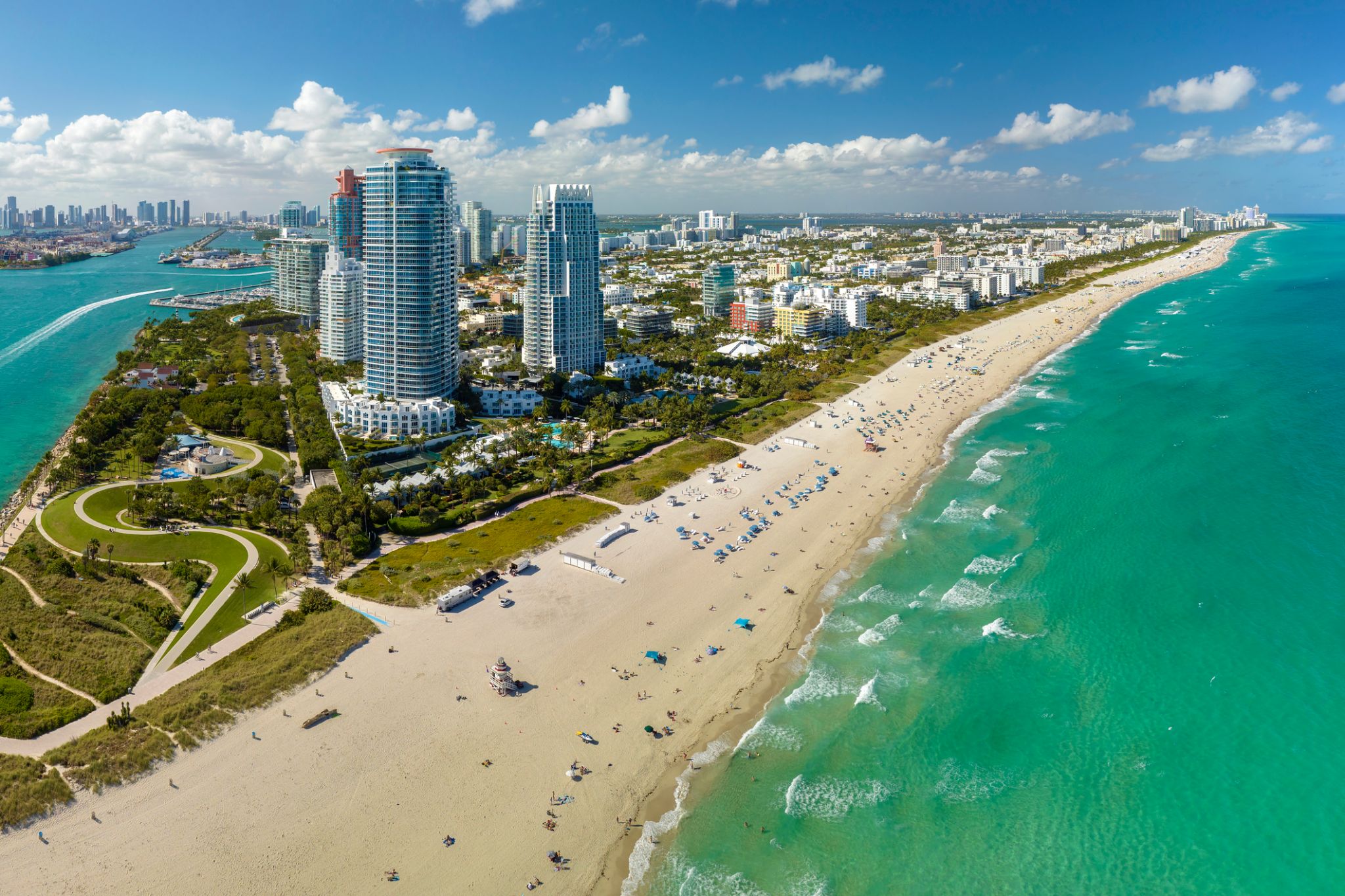
Miami, officially the City of Miami, is the cultural, economic and financial center of South Florida. Miami is the seat of Miami-Dade County, the most populous county in Florida. The city covers an area of about 56.6 square miles (147 km2), between the Everglades to the west and Biscayne Bay on the east; with a 2017 estimated population of 463,347, Miami is the sixth most densely populated major city in the United States. The Miami metropolitan area is home to 6.1 million people and the seventh-largest metropolitan area in the nation. Miami's metro area is the second-most populous metropolis in the southeastern United States and fourth-largest urban area in the U.S.
Miami is a major center, and a leader in finance, commerce, culture, media, entertainment, the arts, and international trade. The Miami Metropolitan Area is by far the largest urban economy in Florida and the 12th largest in the United States with a GDP of $344.9 billion as of 2017. In 2012, Miami was classified as an "Alpha−" level world city in the World Cities Study Group's inventory. In 2010, Miami ranked seventh in the United States and 33rd among global cities in terms of business activity, human capital, information exchange, cultural experience, and political engagement. In 2008, Forbes magazine ranked Miami "America's Cleanest City", for its year-round good air quality, vast green spaces, clean drinking water, clean streets, and citywide recycling programs. According to a 2009 UBS study of 73 world cities, Miami was ranked as the richest city in the United States, and the world's seventh-richest city in terms of purchasing power. Miami is nicknamed the "Capital of Latin America" and is the largest city with a Cuban-American plurality.
Greater Downtown Miami has one of the largest concentrations of international banks in the United States, and is home to many large national and international companies. The Civic Center is a major center for hospitals, research institutes, medical centers, and biotechnology industries. For more than two decades, the Port of Miami, known as the "Cruise Capital of the World", has been the number one cruise passenger port in the world. It accommodates some of the world's largest cruise ships and operations, and is the busiest port in both passenger traffic and cruise lines. Metropolitan Miami is also a major tourism hub in the southeastern U.S. for international visitors, ranking number two in the country after New York City.
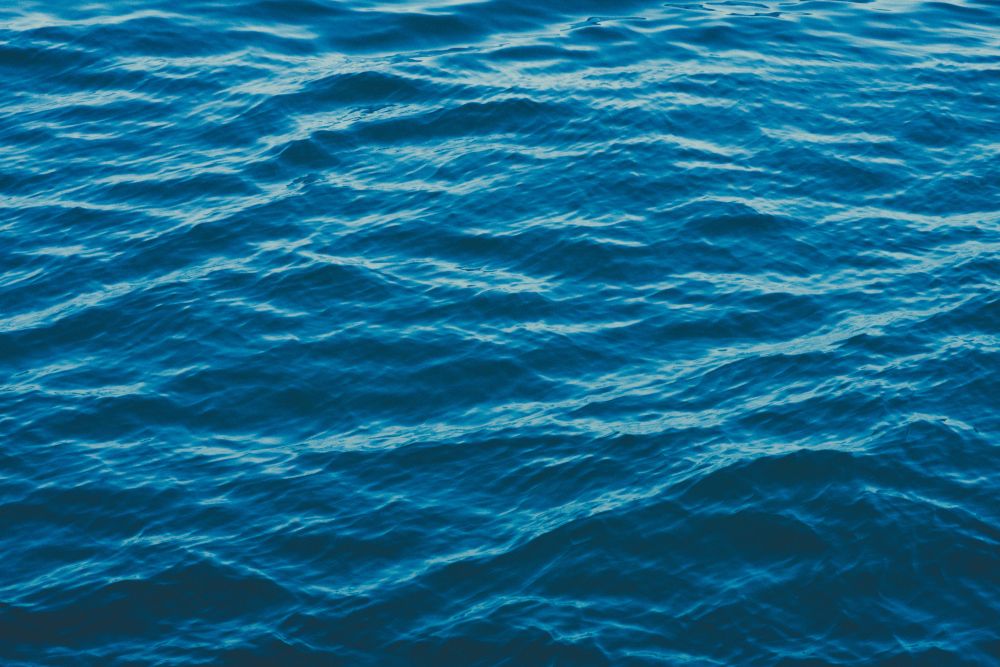
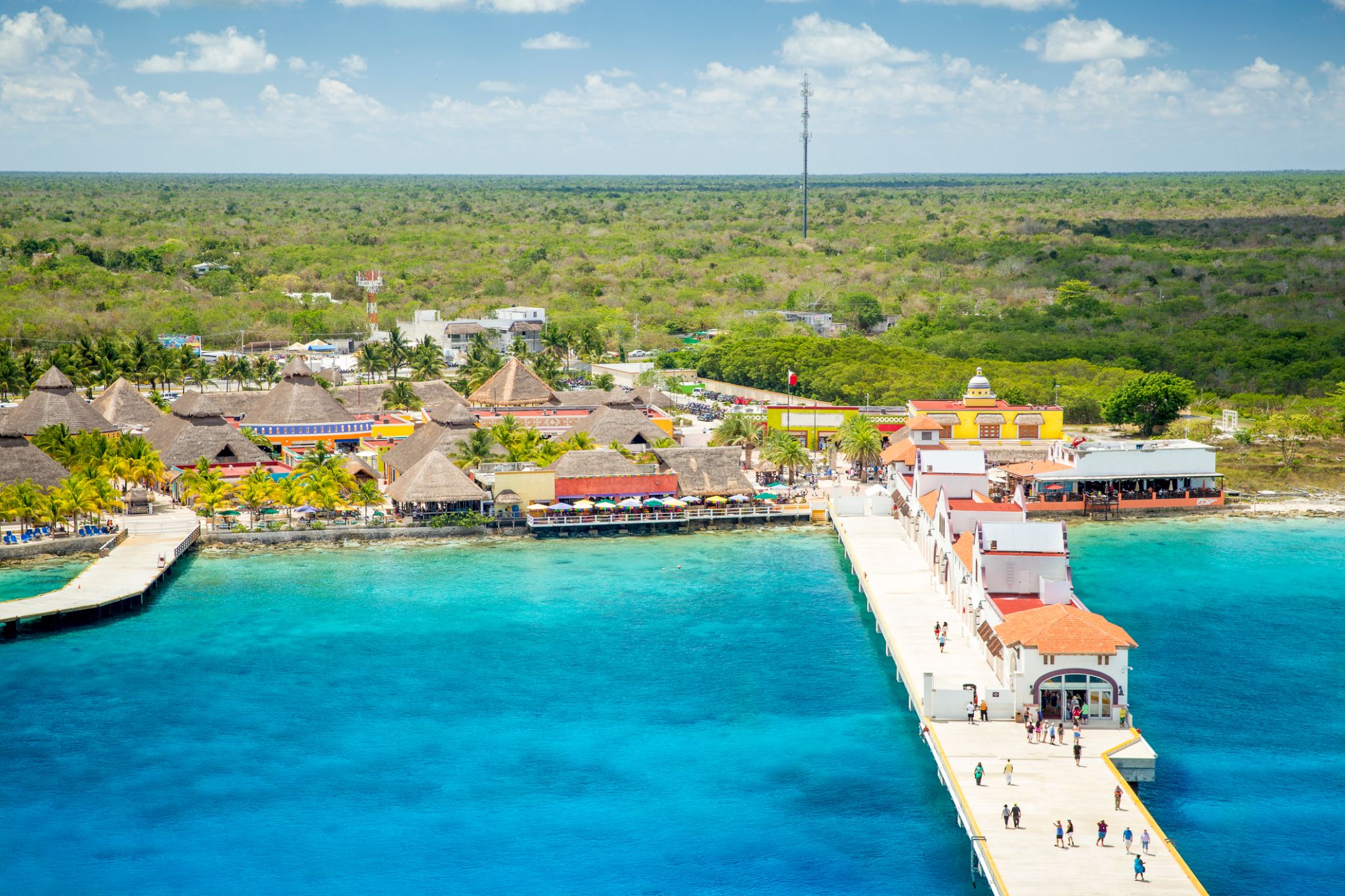
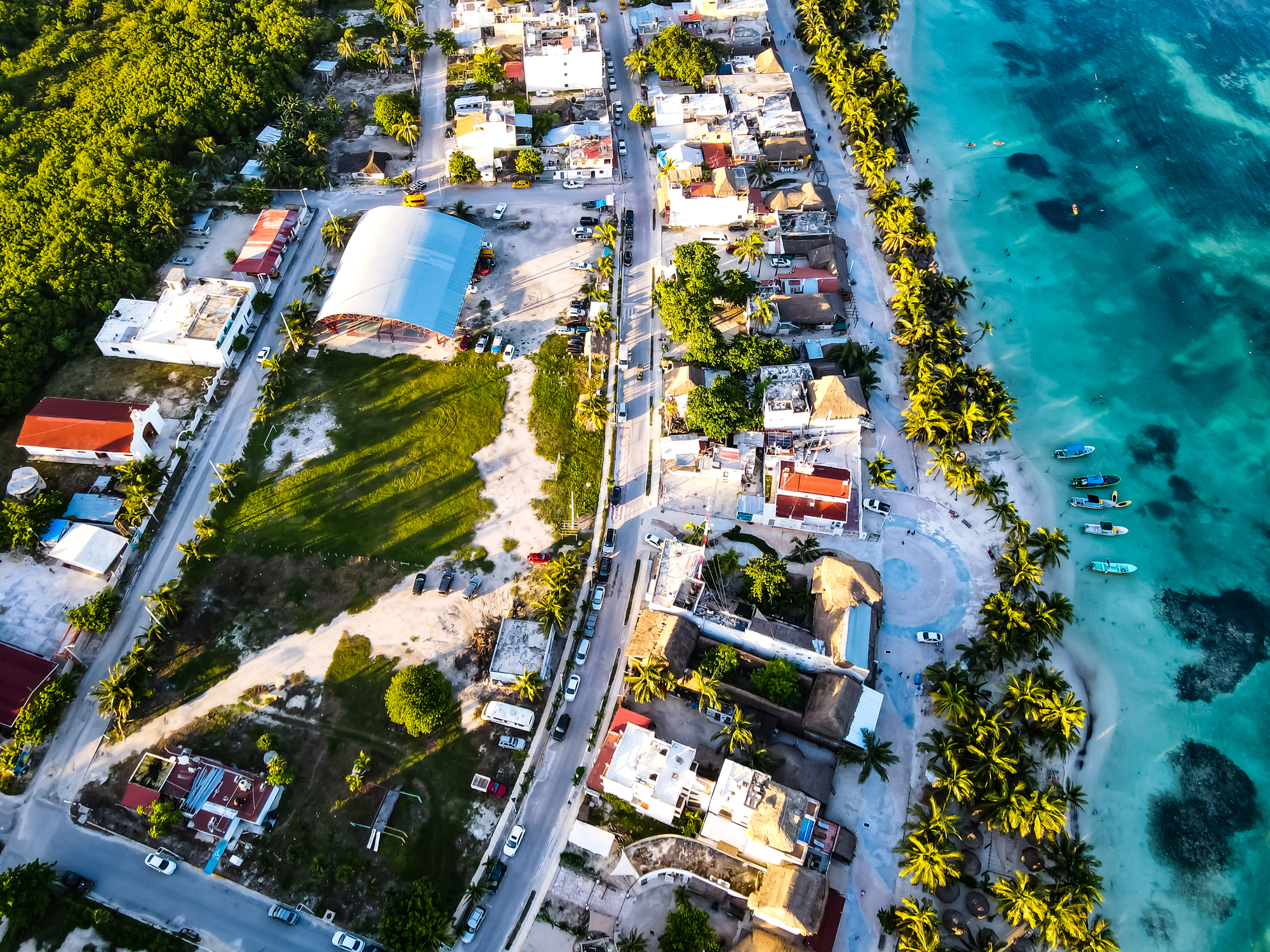
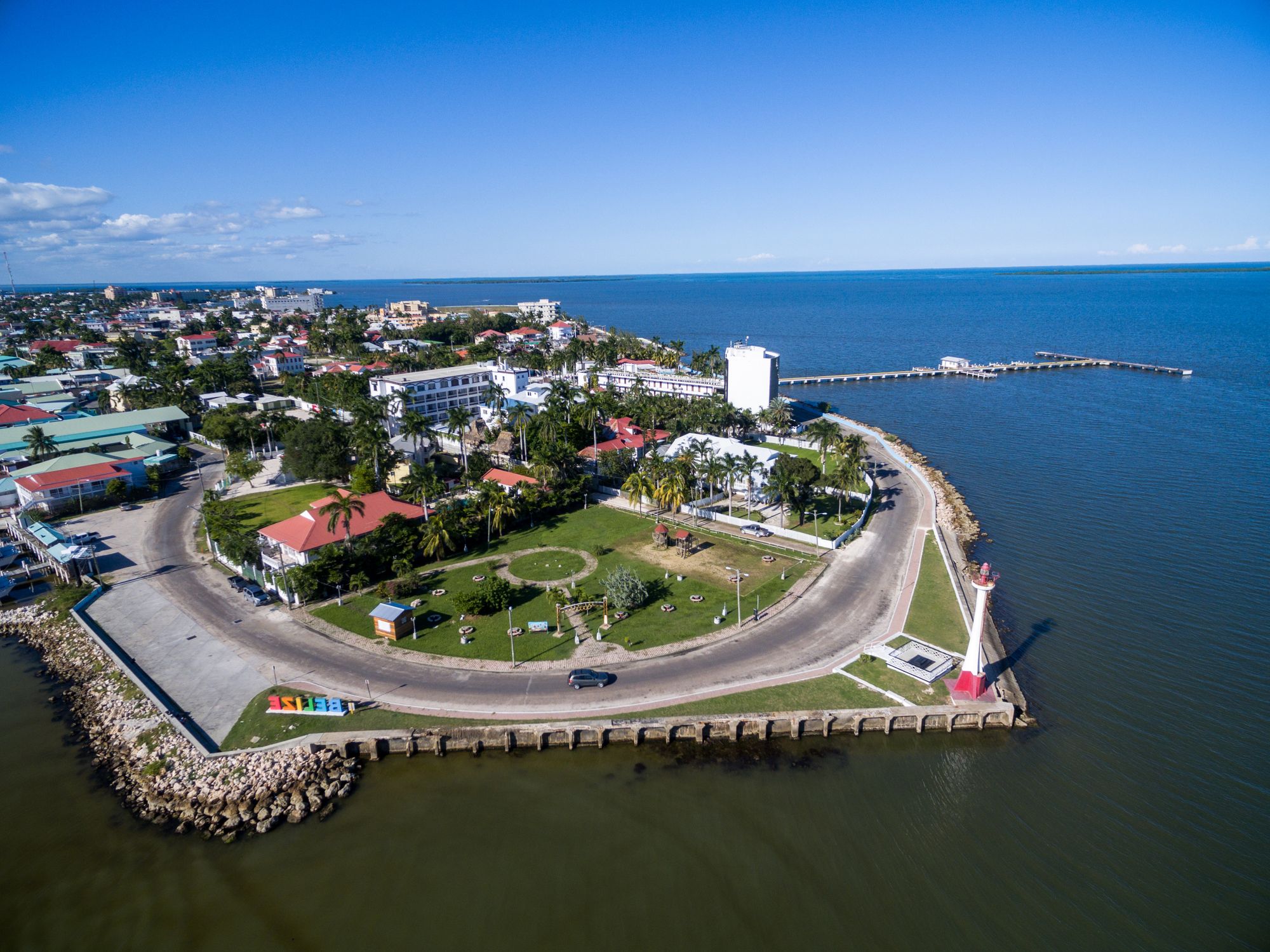
A tropical breeze brings the scent of the sea to Belize City, a place that opens the door to vibrant markets, Caribbean-style architecture, and a friendly, laid-back vibe. Here, colonial stilt houses line the streets while the sounds of reggae fill the air, and fishermen’s boats return to shore with the morning’s catch. At the central market, visitors can taste fresh tropical fruits and seafood dishes that capture the true flavor of Belize.
For adventure seekers, Belize City is the gateway to the Belize Barrier Reef, the second largest in the world, where divers and snorkelers explore colorful corals and encounter nurse sharks and rays. From here, it’s easy to reach the Mayan ruins of Altun Ha and step into the legacy of an ancient civilization. The city combines the relaxed Caribbean rhythm with a unique chance to discover the natural beauty and rich culture of Central America.
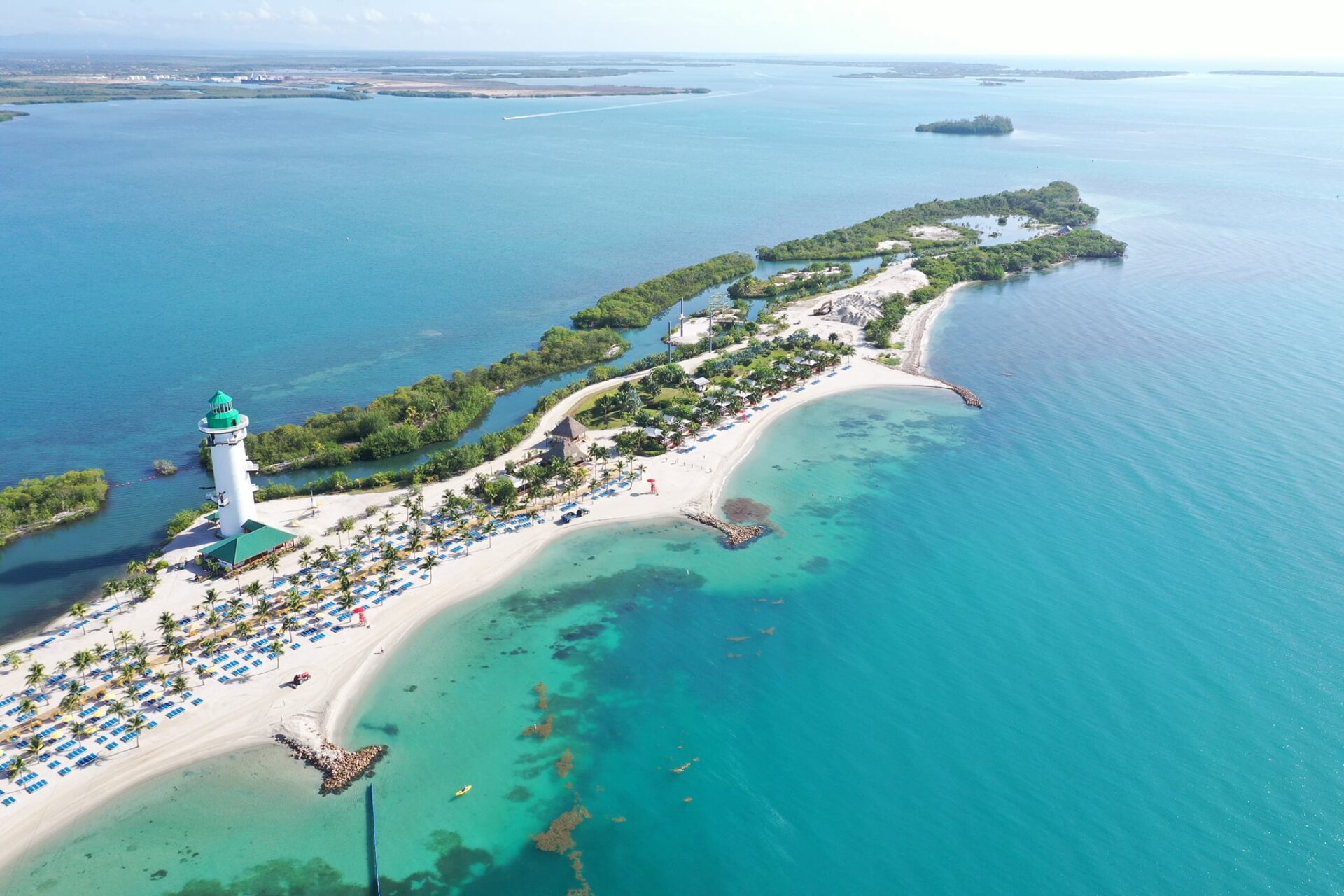
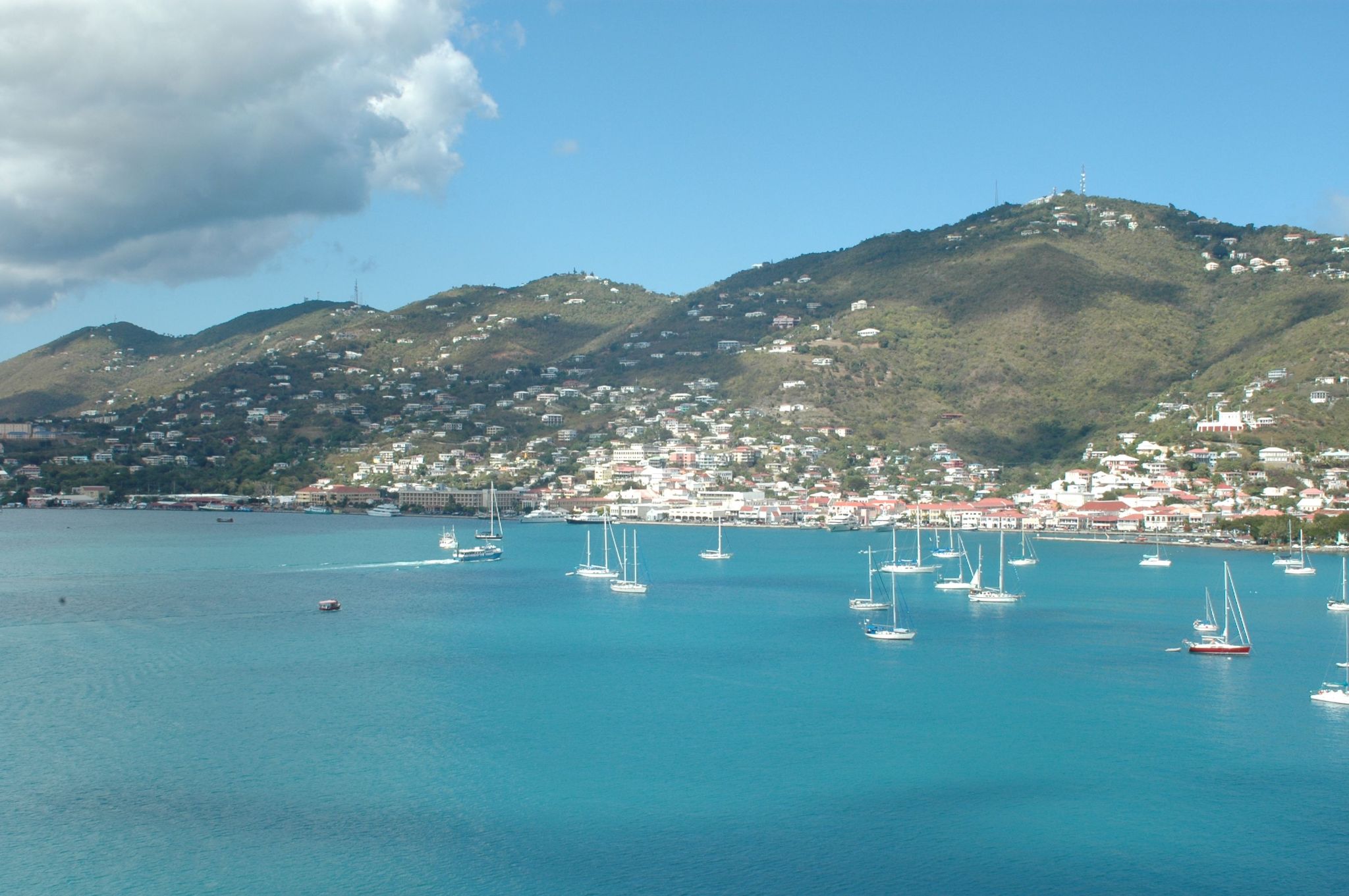
Santo Tomas de Castilla is a port city on the Caribbean coast of Guatemala, serving as a crucial transport hub that connects the country with international trade routes. Thanks to its strategic location, industrial activity blends harmoniously with the natural beauty of the surrounding tropical landscapes.
Tourists can enjoy visiting nearby reserves and beaches, as well as exploring the local culture through markets and maritime traditions. The calm Caribbean Sea and mild climate make this area attractive both for travelers and those seeking new business opportunities.
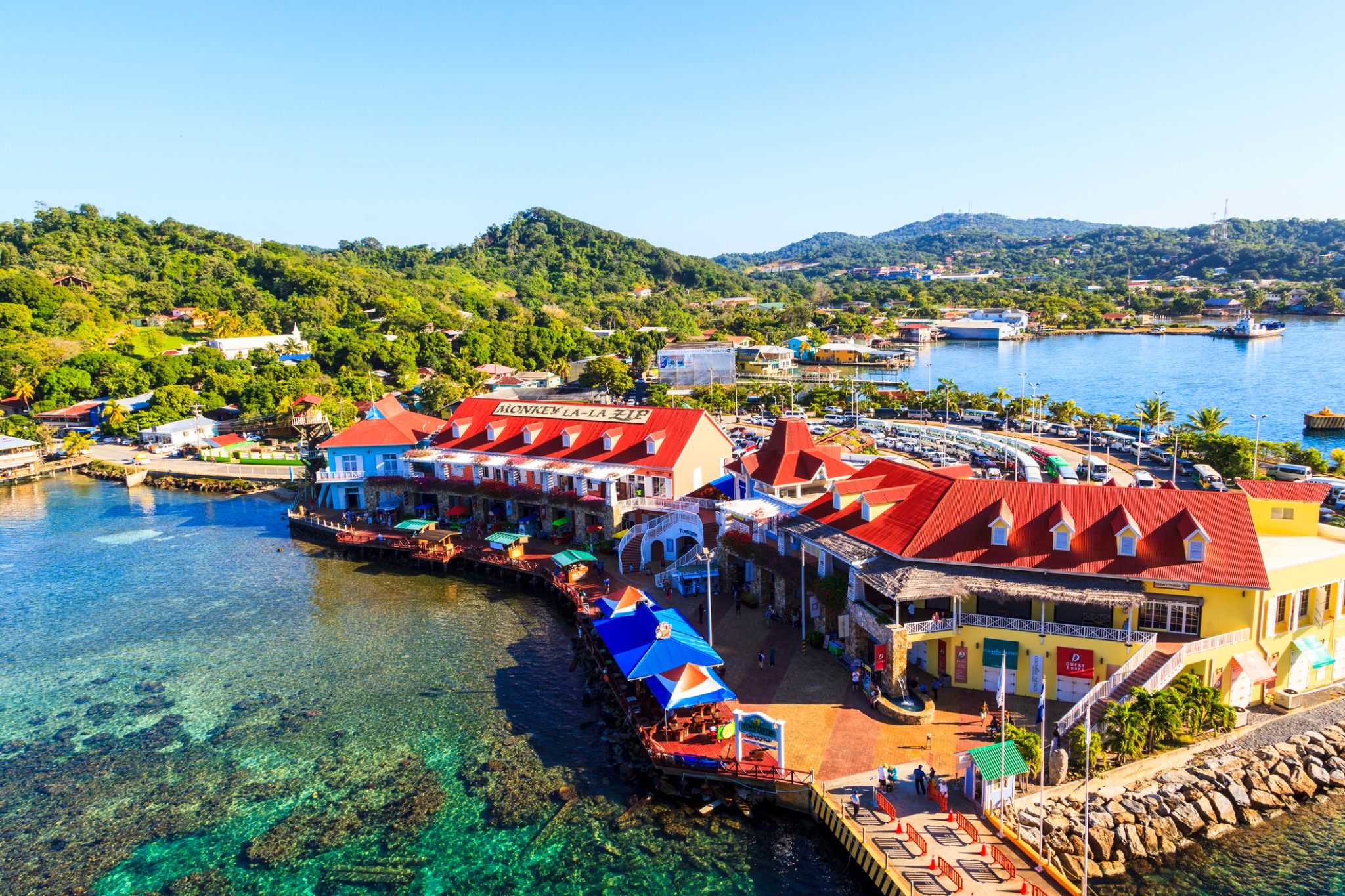


Puerto Limón, commonly known as Limón (Spanish for "lemon"), is the capital city and main hub of Limón province, as well as of the cantón (county) of Limón in Costa Rica. It is the second largest city in Costa Rica, with a population of over 55,000, and is home of the Afro-Costa Rican community. Part of the community traces its roots to Italian, Jamaican and Chinese laborers who worked on a late nineteenth-century railroad project that connected San José to Puerto Limón. Until 1948, the Costa Rican government did not recognize Afro-Caribbean people as citizens and restricted their movement outside Limón province. As a result of this "travel ban", this Afro-Caribbean population became firmly established in the region, which influenced decisions not to move even after it was legally permitted. Nowadays, there is a significant outflow of Limón natives who move to the country's Central Valley in search for better employment and education. The Afro-Caribbean community speaks Spanish and Limonese Creole, a creole of English.
Puerto Limón contains two port terminals, Limón and Moín, which permit the shipment of Costa Rican exports as well as the anchoring of cruise ships. In 2016, the government pledged ₡93 million ($166,000) for a new cruise ship terminal for Puerto Limón.
Health care is provided for the city by Hospital Dr. Tony Facio Castro. Two small islands, Uvita Island and Isla de Pájaros, are just offshore.

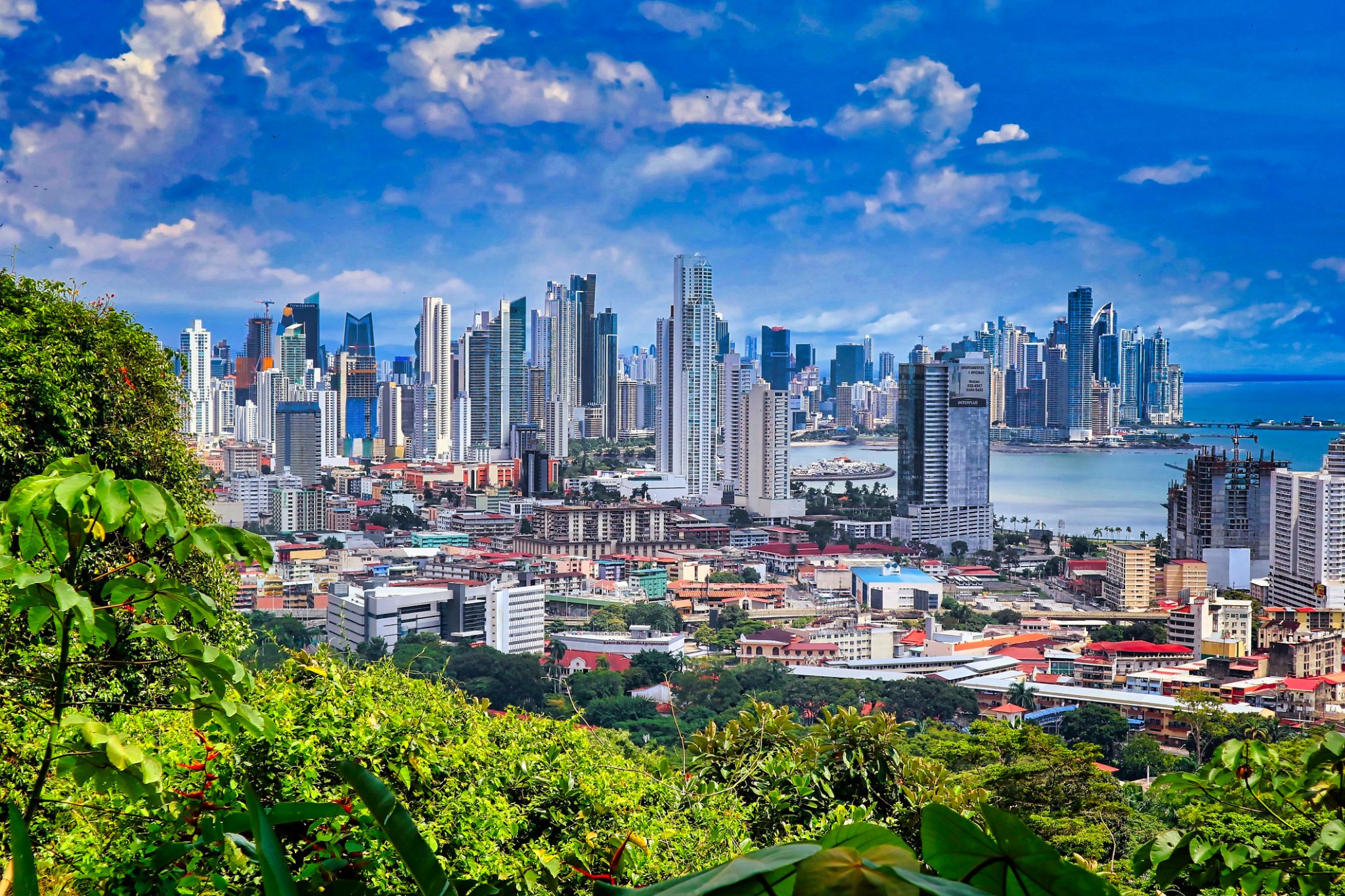
Panama City, located on the northwestern coast of Florida, is known for its long white beaches with soft quartz sand and the warm emerald waters of the Gulf of Mexico. This resort town is popular among both family vacationers and lovers of water activities: here you can enjoy kayaking, parasailing, diving, and fishing. One of the highlights is the local promenade — Pier Park — home to shops, restaurants, and entertainment venues.
In addition to beach relaxation, Panama City offers unique natural attractions. Nearby is the St. Andrews State Park, where visitors can watch dolphins, walk along trails through dunes and pine forests, or take a trip to Shell Island, a place of untouched nature. The city blends a resort atmosphere with Southern charm, offering a peaceful yet activity-filled vacation experience.

Panama City, located on the northwestern coast of Florida, is known for its long white beaches with soft quartz sand and the warm emerald waters of the Gulf of Mexico. This resort town is popular among both family vacationers and lovers of water activities: here you can enjoy kayaking, parasailing, diving, and fishing. One of the highlights is the local promenade — Pier Park — home to shops, restaurants, and entertainment venues.
In addition to beach relaxation, Panama City offers unique natural attractions. Nearby is the St. Andrews State Park, where visitors can watch dolphins, walk along trails through dunes and pine forests, or take a trip to Shell Island, a place of untouched nature. The city blends a resort atmosphere with Southern charm, offering a peaceful yet activity-filled vacation experience.

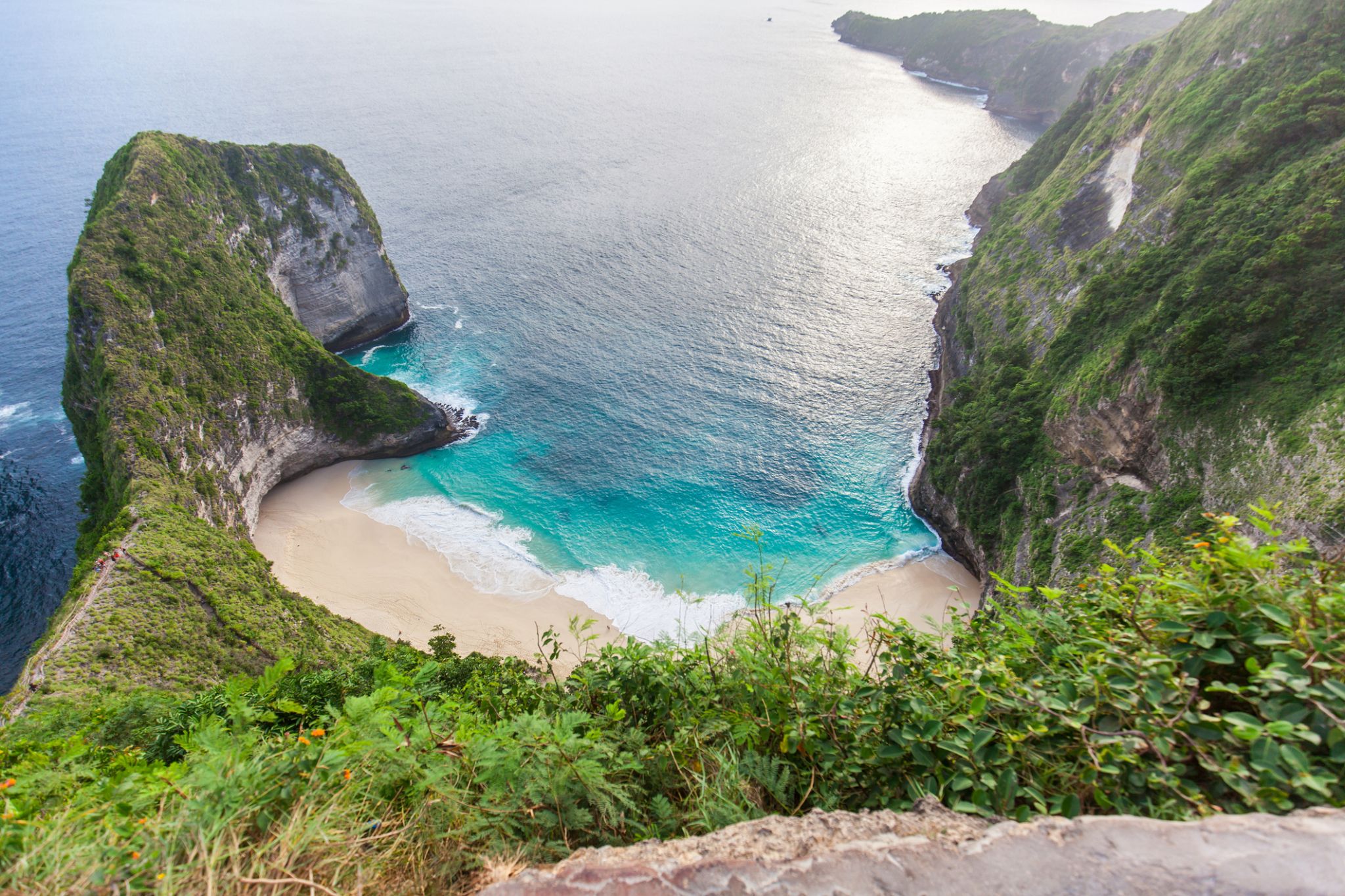
Manta
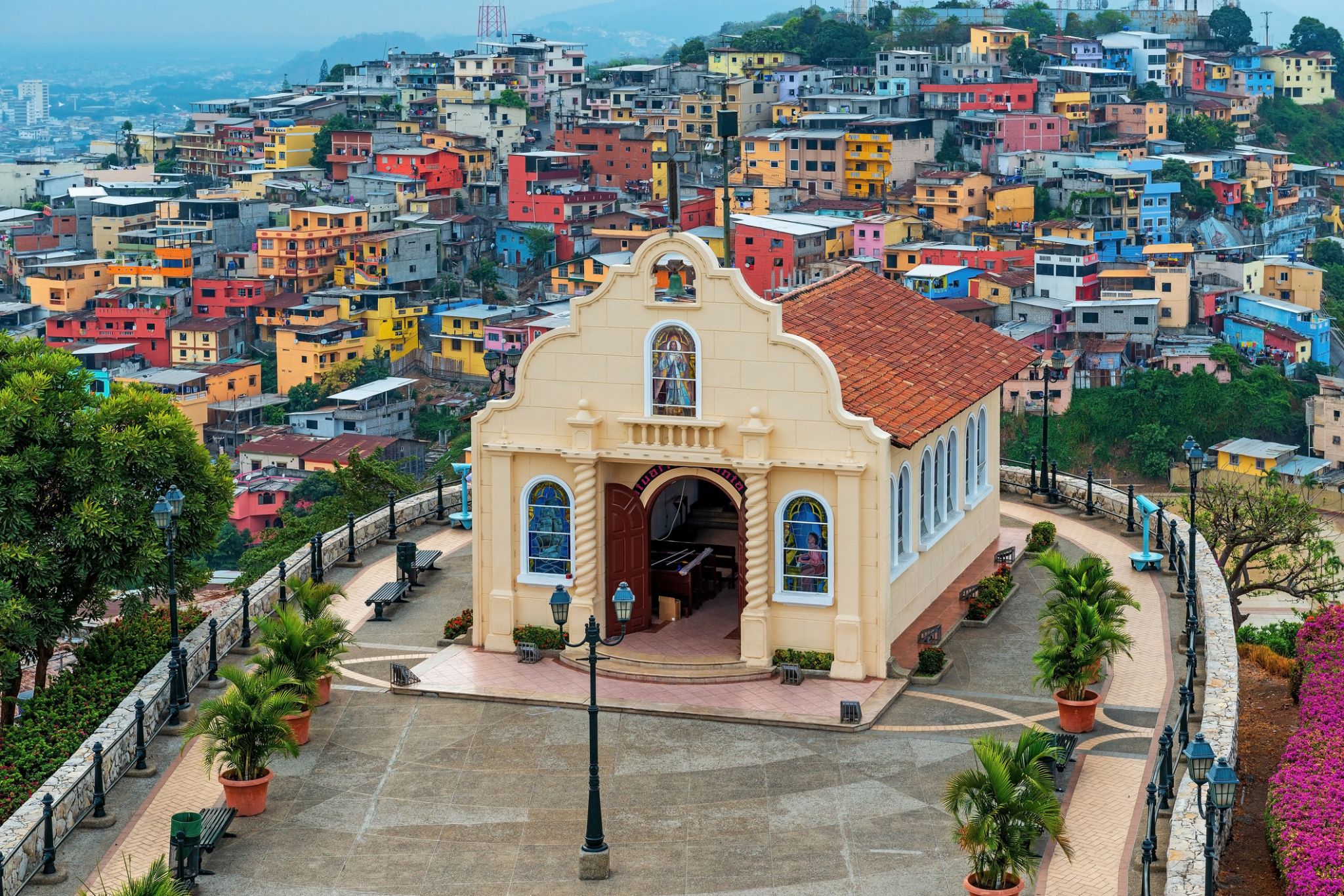
The city is the capital of Guayas Province and the seat of Guayaquil canton.
Guayaquil is on the west bank of the Guayas River, which flows into the Pacific Ocean at the Gulf of Guayaquil.

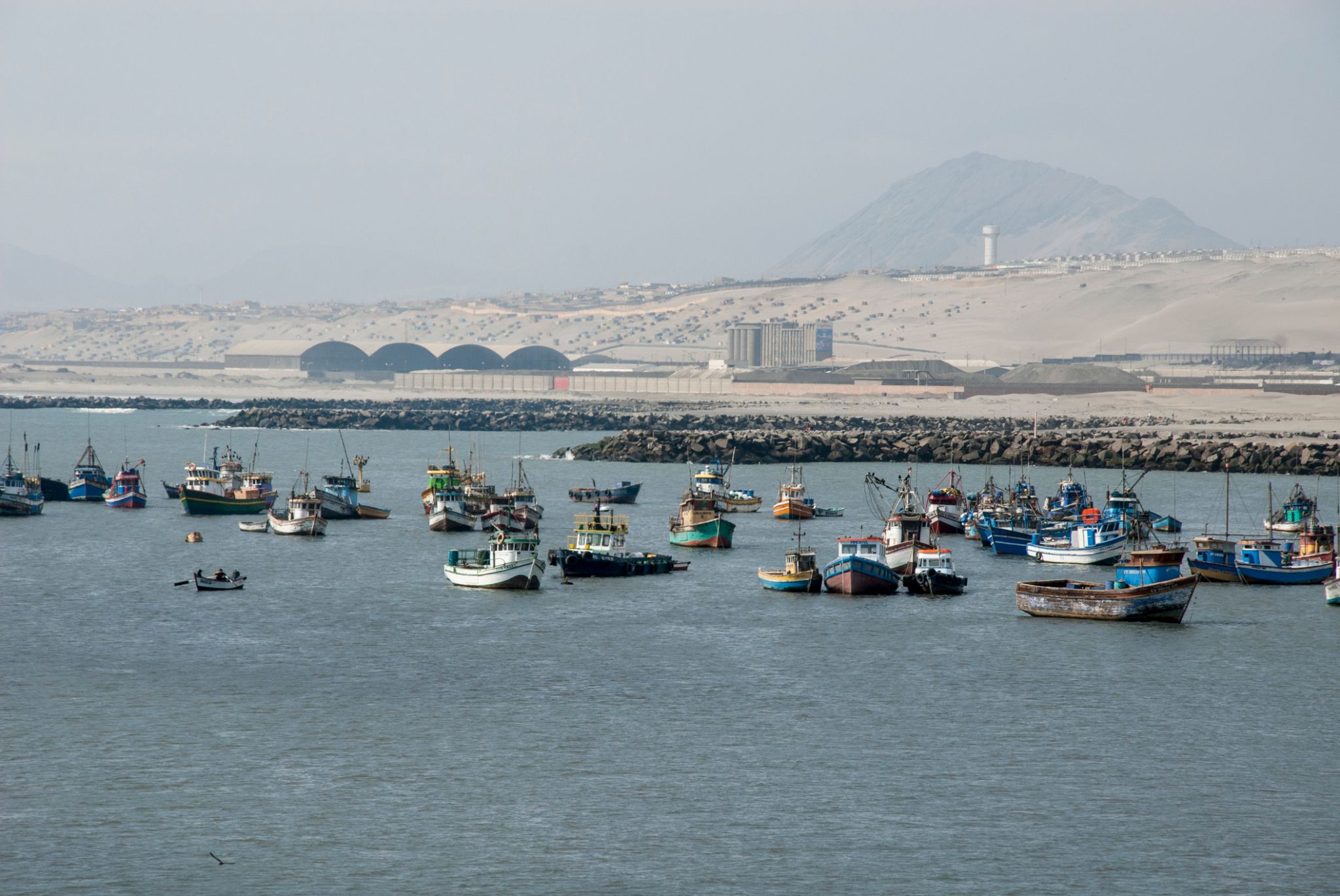
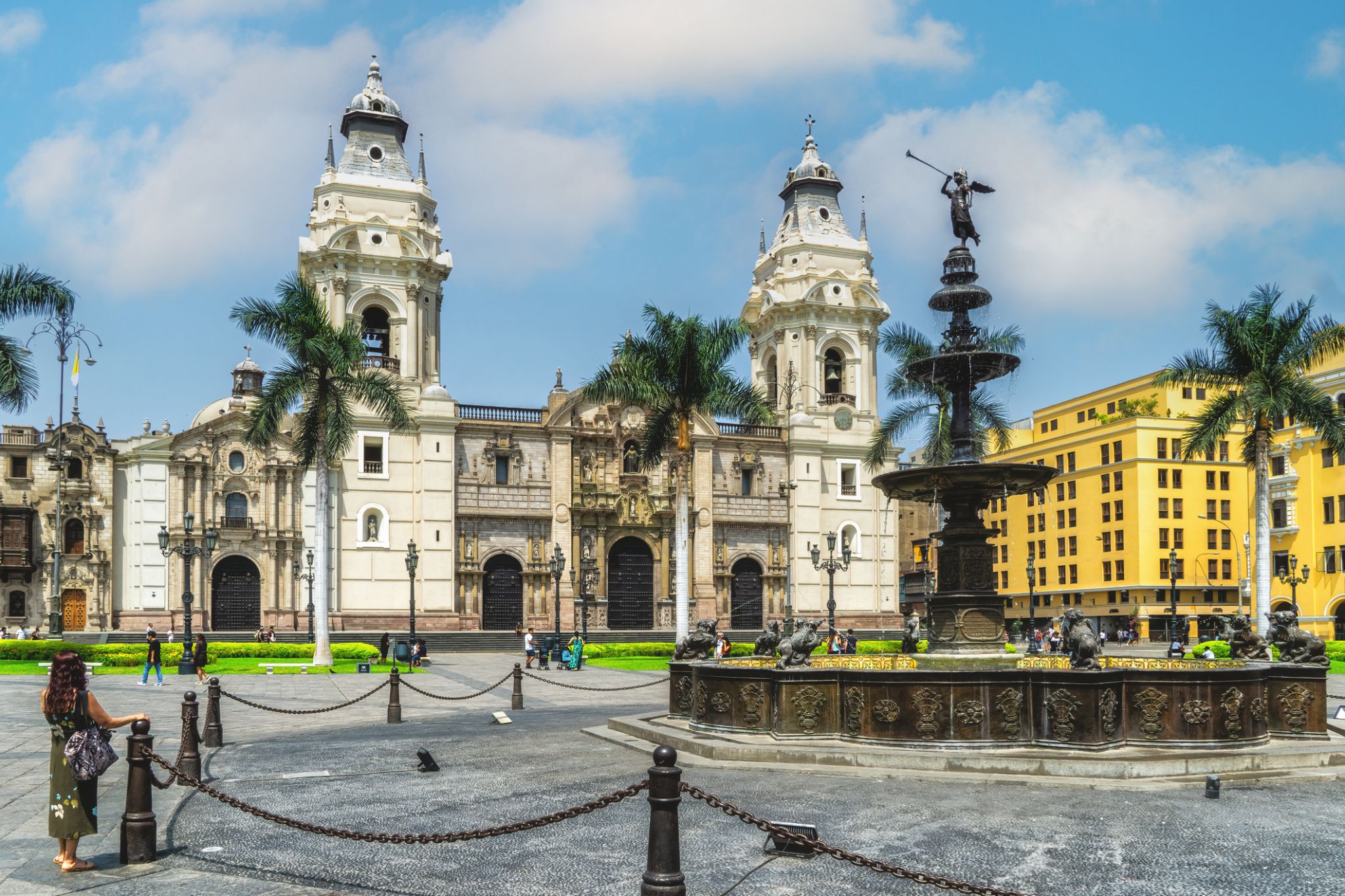
Lima is the capital and the largest city of Peru. It is located in the valleys of the Chillón, Rímac and Lurín rivers, in the central coastal part of the country, overlooking the Pacific Ocean. Together with the seaport of Callao, it forms a contiguous urban area known as the Lima Metropolitan Area. With a population of more than 9 million, Lima is the most populous metropolitan area of Peru and the third-largest city in the Americas (as defined by "city proper"), behind São Paulo and Mexico City.
Lima was founded by Spanish conquistador Francisco Pizarro on January 18, 1535, as Ciudad de los Reyes. It became the capital and most important city in the Viceroyalty of Peru. Following the Peruvian War of Independence, it became the capital of the Republic of Peru. Around one-third of the national population lives in the metropolitan area.


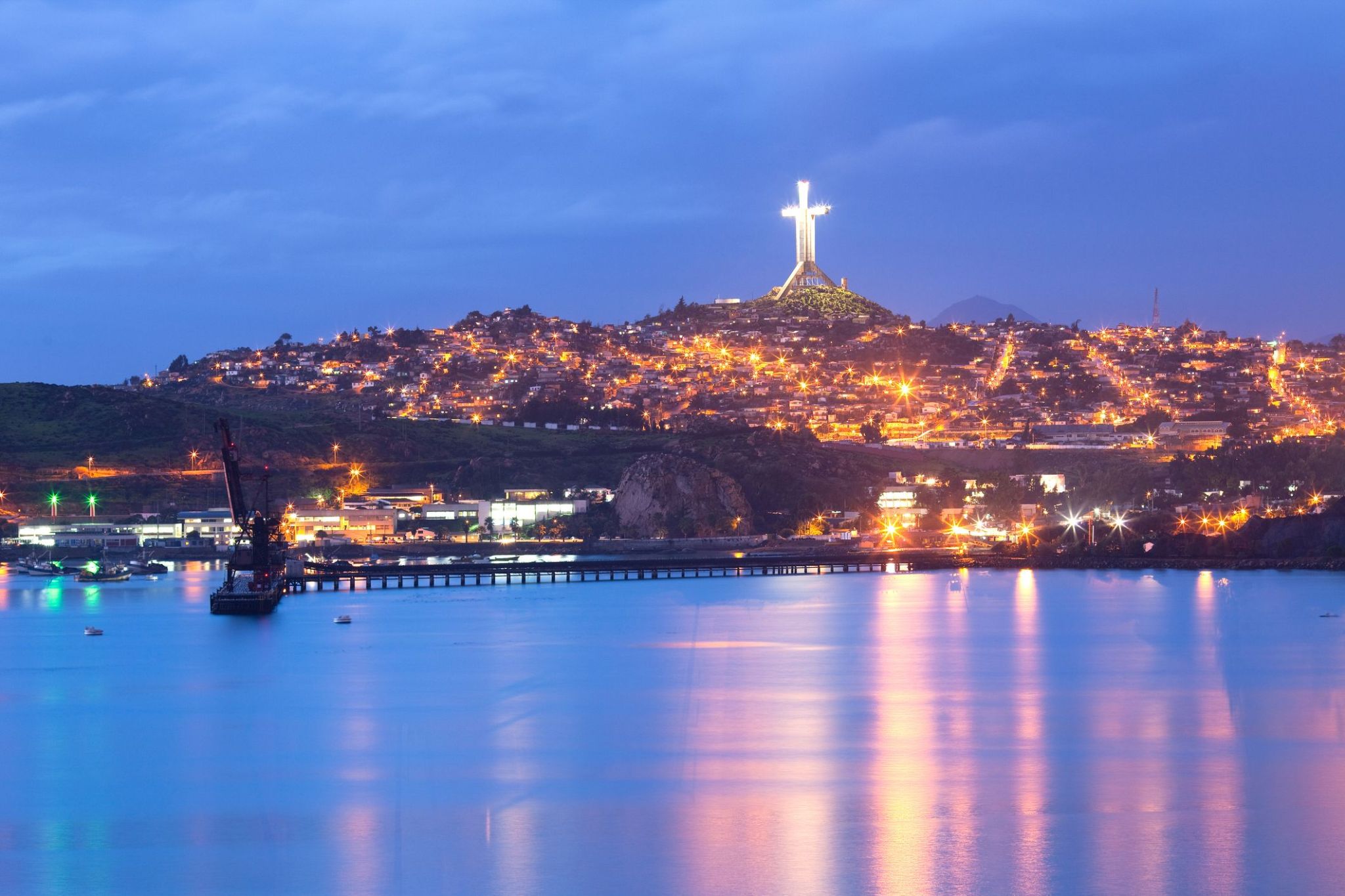
An unforgettable encounter with the Pacific coast awaits every traveler venturing into Coquimbo—a charming town where modernity and history intertwine in an extraordinary harmony. From the morning breeze by the bay to the luxurious sunsets over the port, this resort offers the true atmosphere of the Chilean coastline, where life flows at a gentle pace and every street is infused with the scent of the sea. Here you can savor fresh seafood at cozy restaurants or stroll along the elegant waterfront, soaking up the views and the cries of seagulls.
Coquimbo is also known for its historical and cultural landmarks: ancient churches, artisan markets, and contemporary art galleries create a unique blend of traditions and new experiences. Adventure lovers can explore the surrounding hills or discover the mysterious fortress—a testament to the city’s pirate-filled past. This city seems to invite every traveler to write their own chapter of an amazing story on the coast of Chile.
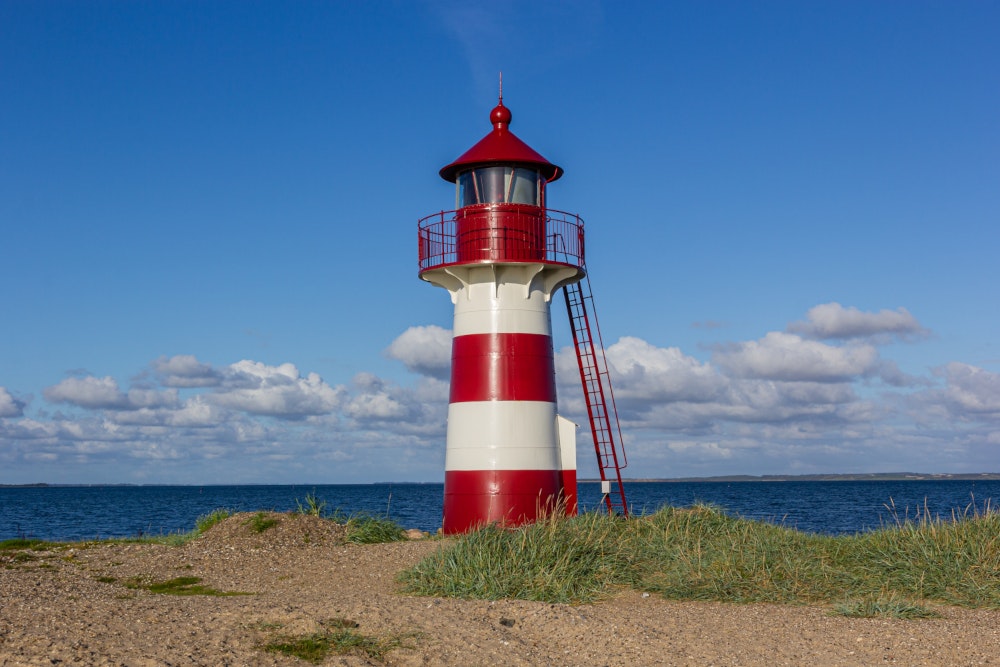


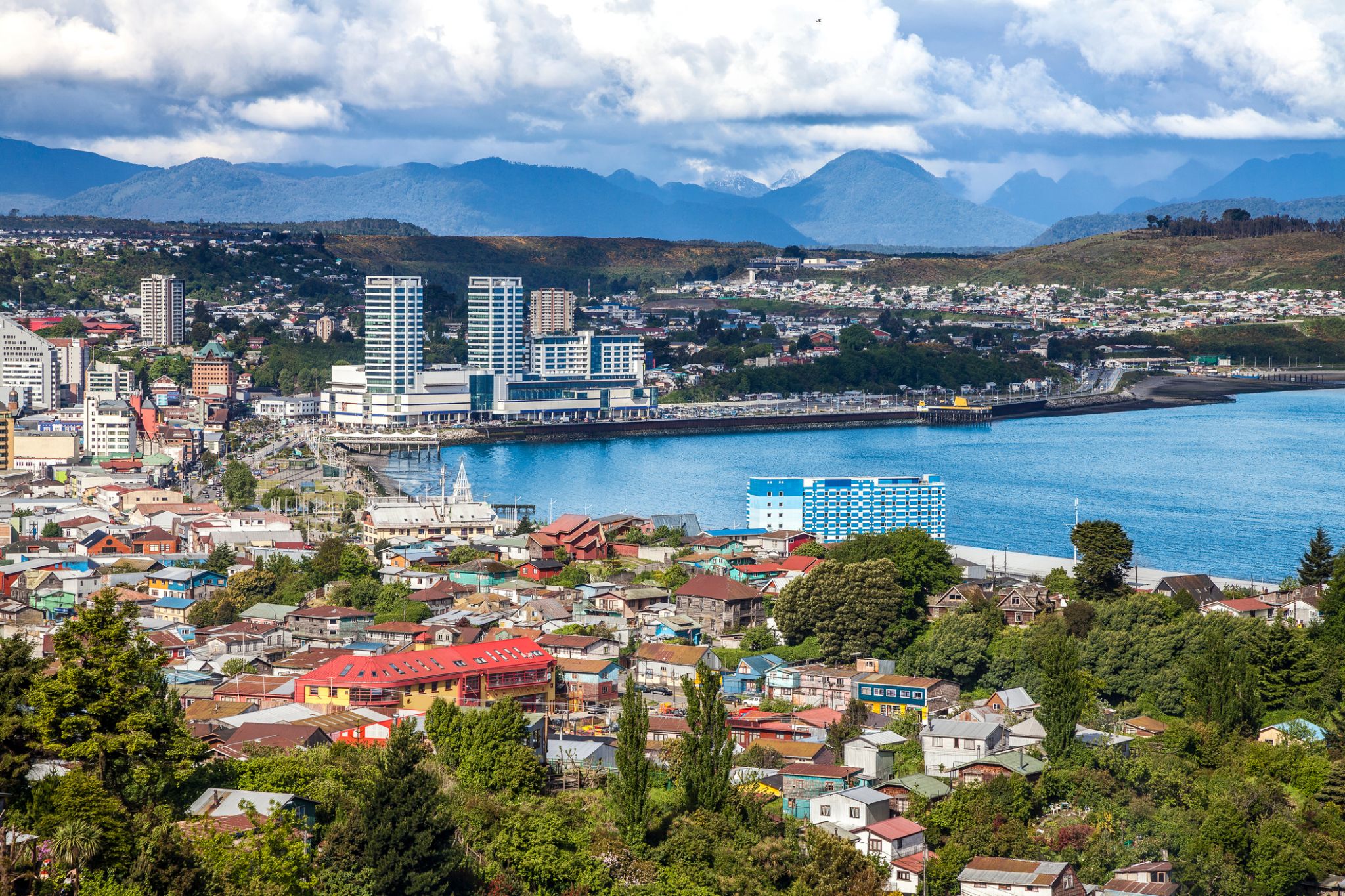
Puerto Montt is a port city and commune in southern Chile, located at the northern end of the Reloncaví Sound in the Llanquihue Province, Los Lagos Region, 1,055 km to the south of the capital, Santiago. The commune spans an area of 1,673 km2 (646 sq mi) and has a population of 245,902 in 2017. It is bounded by the communes of Puerto Varas to the north, Cochamó to the east and southeast, Calbuco to the southwest and Maullín and Los Muermos to the west.
Founded as late as 1853 during the German colonization of southern Chile, Puerto Montt soon outgrew older neighboring cities due to its strategic position at the southern end of the Chilean Central Valley being a gateway city into Chiloé Archipelago, Llanquihue and Nahuel Huapi lakes and Western Patagonia.
Puerto Montt has gained renown and grown significantly due to the rise of Chile as the second largest salmon producer of the world during the 1990s and 2000s. However, the Chilean salmon aquaculture crisis of the late 2000s resulted at least temporarily in severe unemployment and exposed weaknesses in the local economy. The city's cultural heritage mixes elements of Chiloé culture with German heritage although the city has attracted a significant number of newcomers from all over Chile in the last 30 years due to employment opportunities.
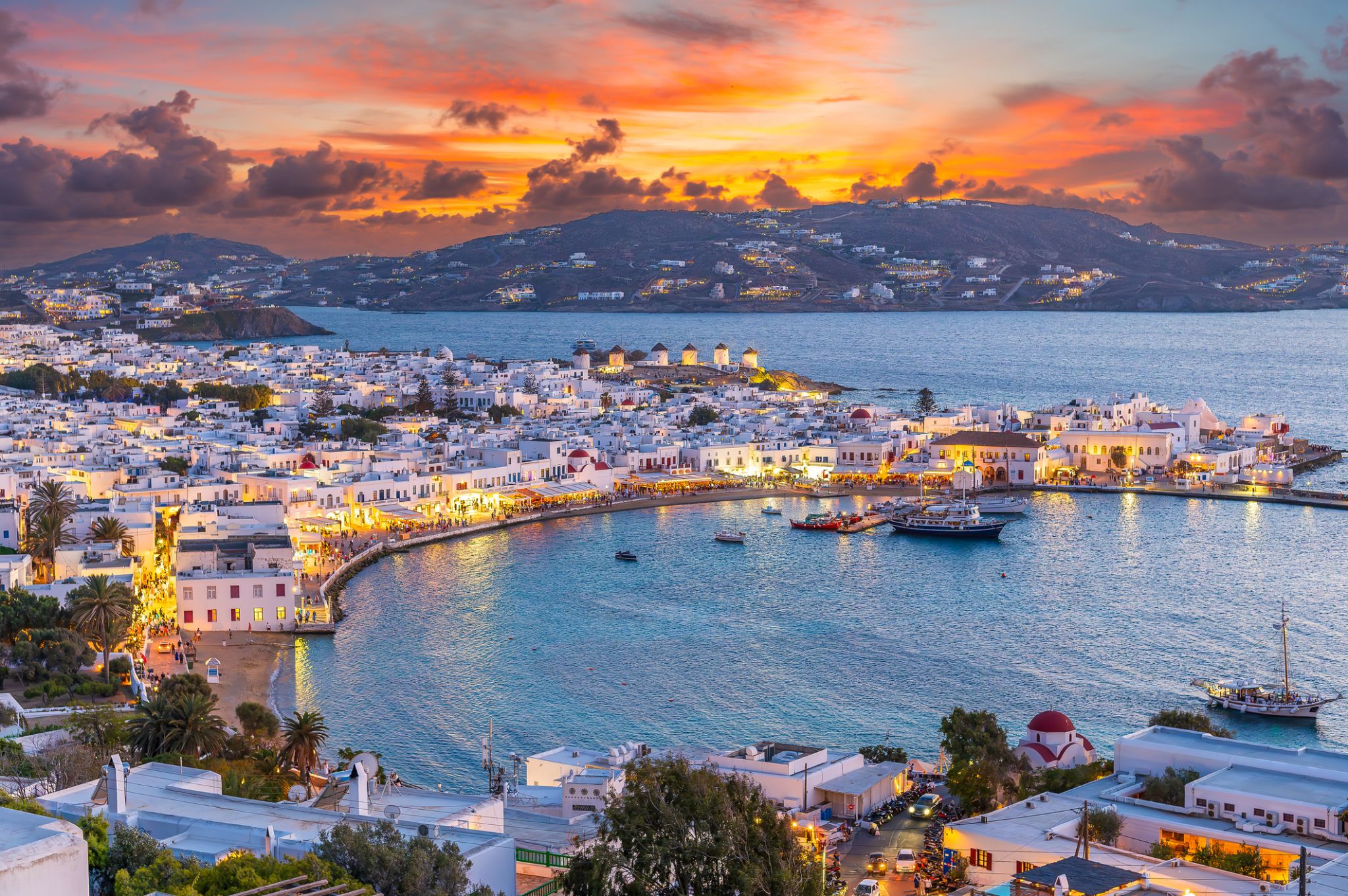
Mykonos is a Greek island, part of the Cyclades, lying between Tinos, Syros, Paros and Naxos. The island spans an area of 85.5 square kilometres (33.0 sq mi) and rises to an elevation of 341 metres (1,119 feet) at its highest point. There are 10,134 inhabitants (2011 census), most of whom live in the largest town, Mykonos, which lies on the west coast. The town is also known as Chora (i.e. the Town in Greek, following the common practice in Greece when the name of the island itself is the same as the name of the principal town).
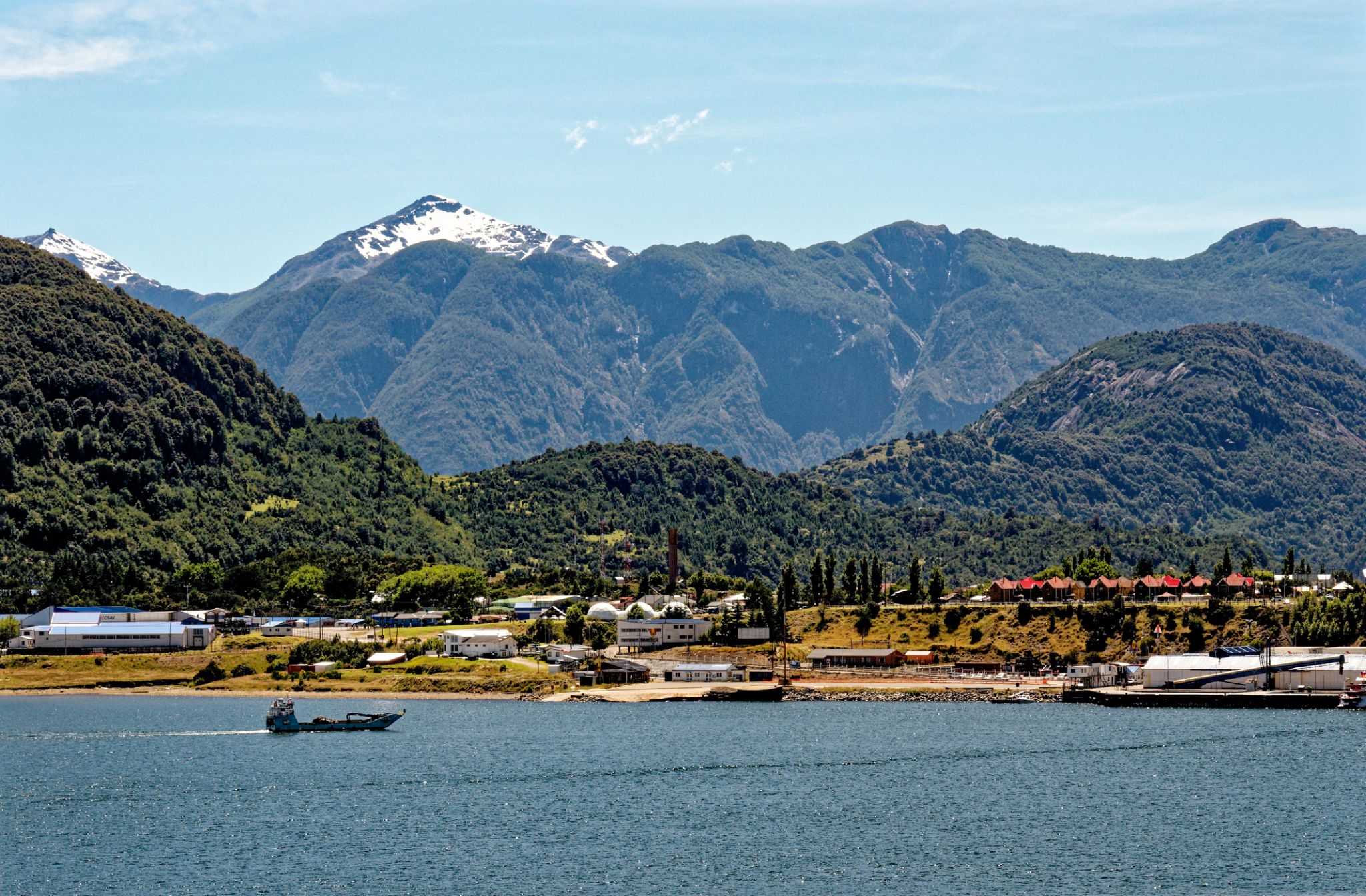



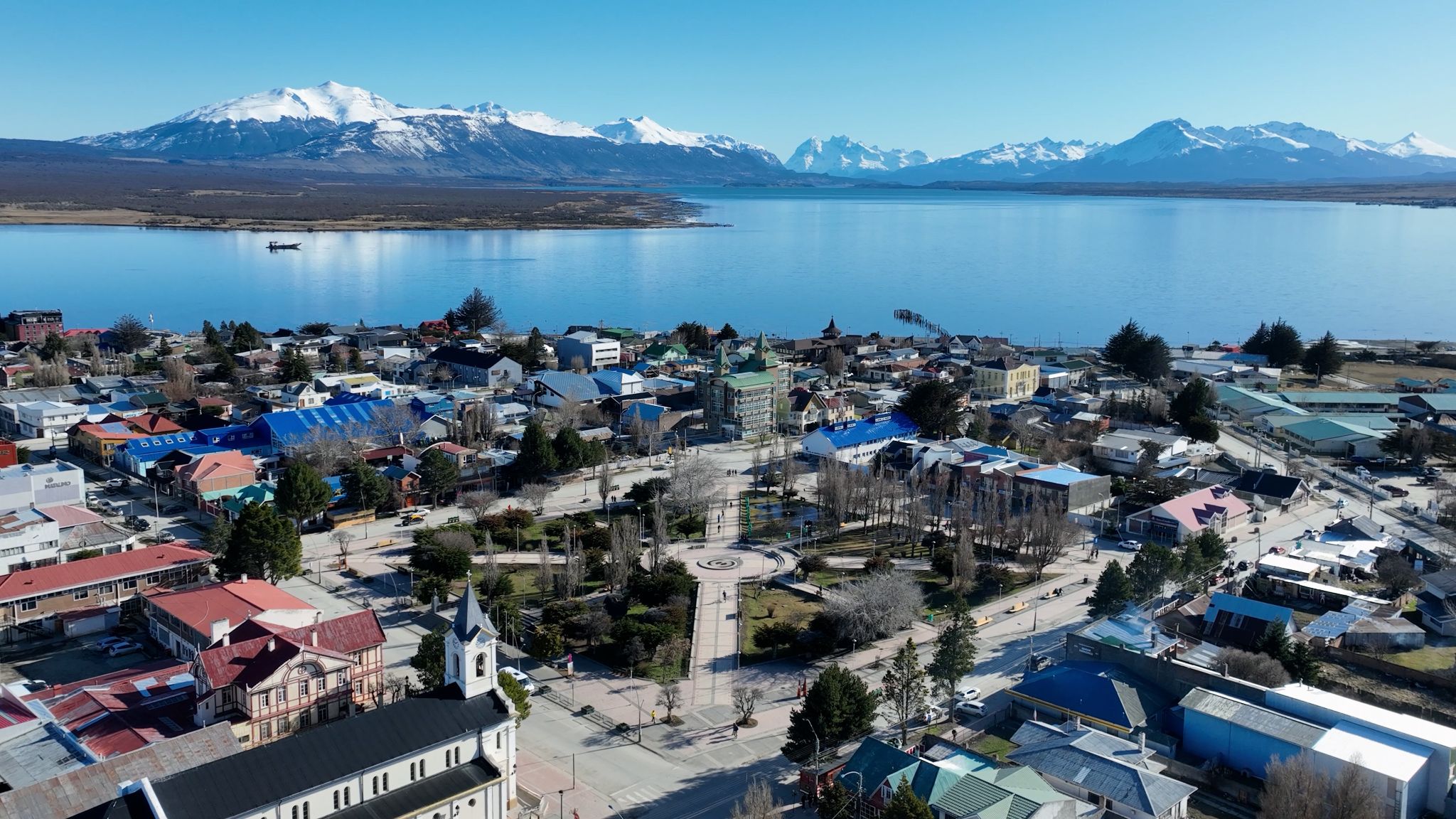
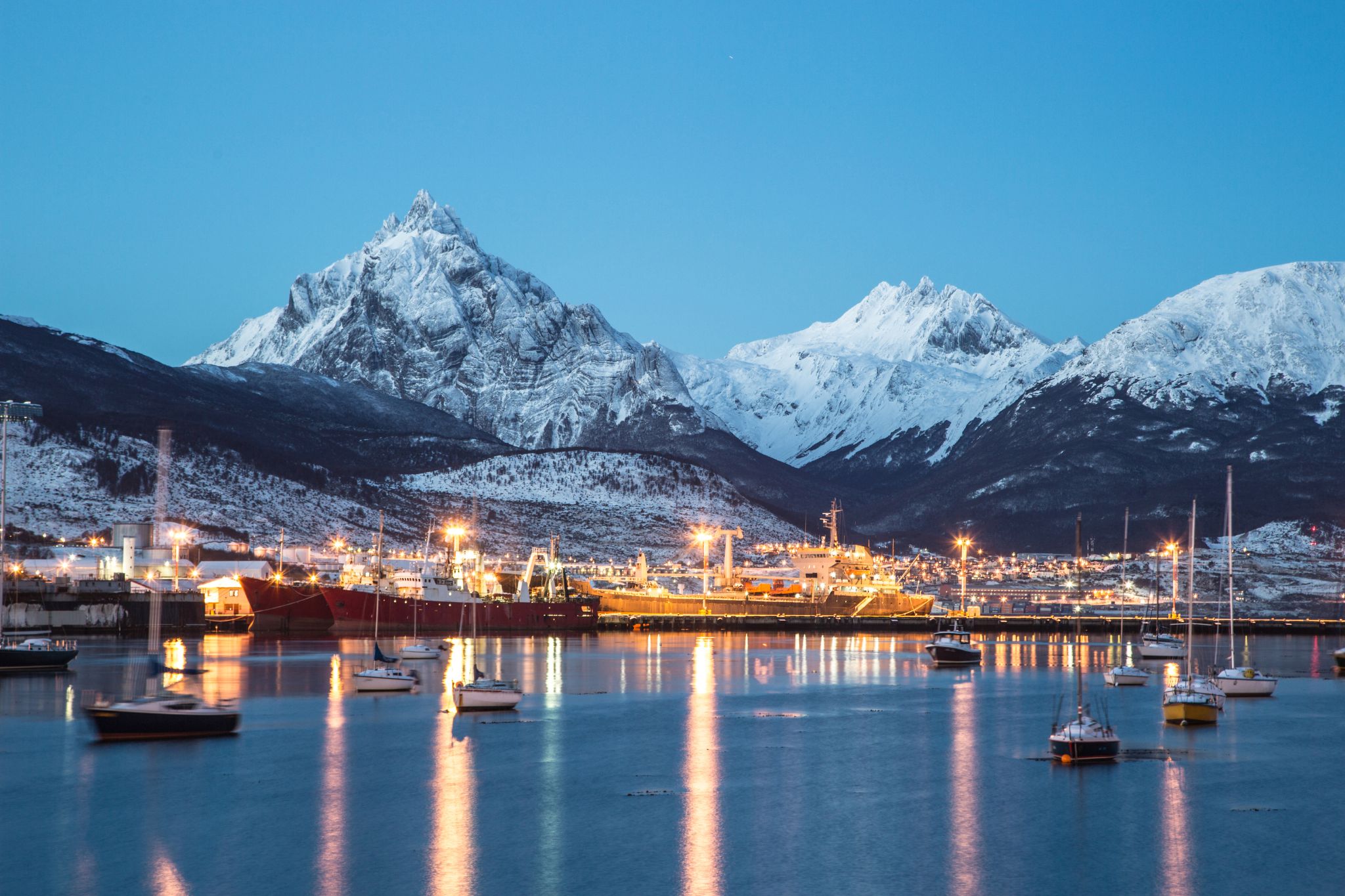
Ushuaia is the capital of Tierra del Fuego, Antártida e Islas del Atlántico Sur Province, Argentina. It is commonly regarded as the southernmost city in the world. Ushuaia is located in a wide bay on the southern coast of Isla Grande de Tierra del Fuego, bounded on the north by the Martial mountain range, and on the south by the Beagle Channel. It is the only municipality in the Department of Ushuaia, which has an area of 9,390 km2 (3,625 sq mi). It was founded October 12 of 1884 by Augusto Lasserreand is located on the shores of the Beagle Channel surrounded by the mountain range of the Martial Glacier, in the Bay of Ushuaia. Besides being an administrative center, it is a light industrial port and tourist hub.





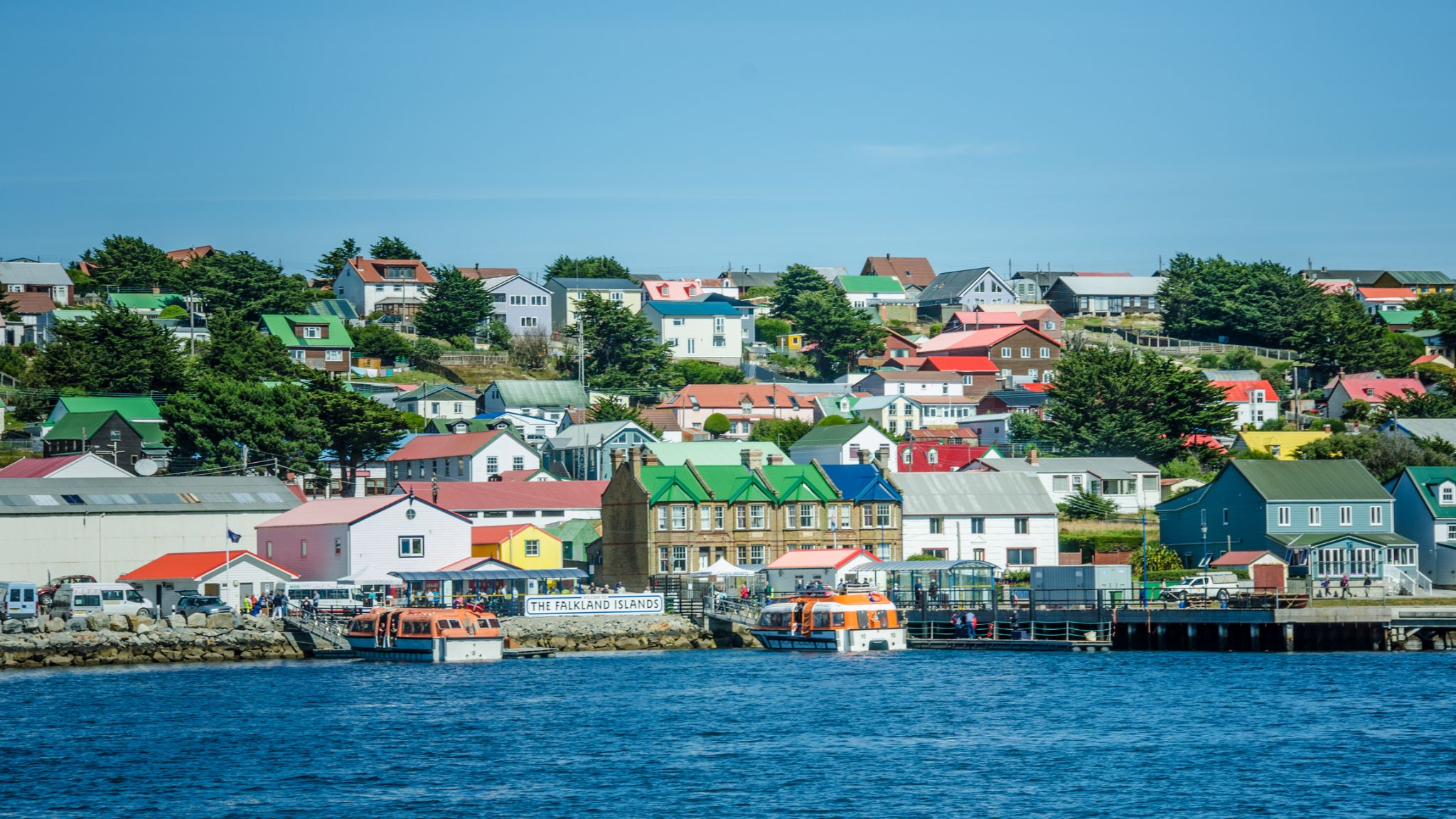
Stanley is the capital of the Falkland Islands. It is located on the island of East Falkland, on a north-facing slope in one of the wettest parts of the islands. At the 2016 census, the town had a population of 2,460 the entire population of the Falkland Islands was 3,398 on Census Day on 9 October 2016
Stanley is represented by five members of the Legislative Assembly of the Falkland Islands, currently Stacy Bragger, Barry Elsby, Mark Pollard, Roger Spink and Leona Vidal Roberts.
Stanley is the main shopping centre on the islands and the hub of East Falkland's road network. Attractions include the Falkland Islands Museum, Government House – built in 1845 and home to the Governor of the Falkland Islands – and a golf course, as well as a whale-bone arch, a totem pole, several war memorials and the shipwrecks in its harbour. The Falkland Islands Company owns several shops. Stanley has four pubs, 11 hotels and guesthouses, three restaurants, a fish and chip shop and the main tourist office. There are three churches, including the Anglican Christ Church Cathedral, the southernmost Anglican cathedral in the world, and the Roman Catholic St. Mary's Church. A bomb disposal unit in the town is a legacy of the Falklands War.
The town hall serves as a post office, philatelic bureau, law court and dance hall. The police station also contains the islands' only prison, with a capacity of 13 in the cells.
The community centre includes a swimming pool (the only public one in the islands), a sports centre, library, and school. A grass football pitch is located by the community centre and hosts regular games.
Stanley Racecourse, located on the west side of Stanley, holds a two-day horse racing meeting every year on 26 and 27 December. The Christmas races have been held here for over 100 years.
Stanley Golf Course has an 18-hole course and a club house. It is also located to the west of Stanley.
King Edward VII Memorial Hospital is the islands' main hospital, with doctors' practice and surgery, radiology department, dental surgery and emergency facilities.
Several bus and taxi companies operate out of Stanley.
Stanley is also home to the Falkland Islands Radio Station (FIRS), the Stanley office of the British Antarctic Survey, and the office of the weekly Penguin News newspaper.
A nursery and garden centre is also here, in whose greenhouses some of the islands' vegetables are grown.


Nestled on the shores of the Golfo Nuevo, Puerto Madryn invites travelers to witness some of the most unforgettable wildlife encounters in South America. Renowned as the gateway to the Valdés Peninsula—a UNESCO World Heritage Site—this coastal town offers the chance to spot Southern Right Whales from the beach, a truly unique spectacle that few places on Earth can match.
Beyond its marine wonders, Puerto Madryn boasts charming streets lined with artisan shops, cafes, and welcoming locals eager to share the region’s Patagonian traditions. With opportunities for snorkeling with sea lions, exploring rugged landscapes, and enjoying fresh seafood, it’s no wonder this destination continues to captivate nature lovers and adventurers alike.


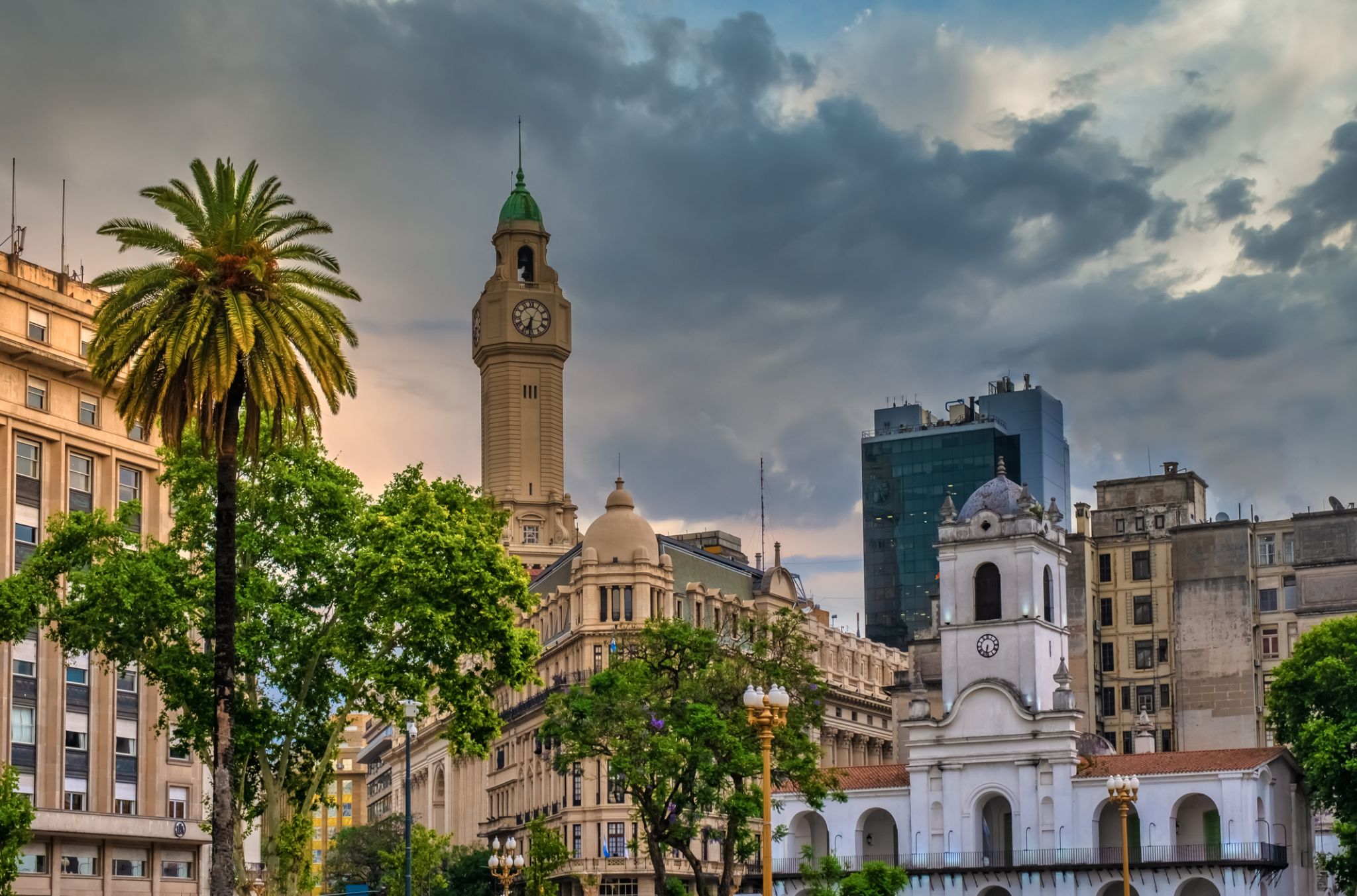
the capital city and chief port of Argentina, in the eastern central part of the country, on the Plata River; population 3,042,600 (est. 2008).